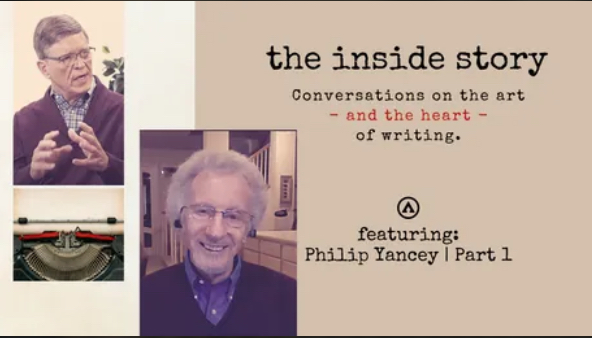
The Writer’s Studio 13 – My Interview with Philip Yancey (Part 1)
July 7, 2023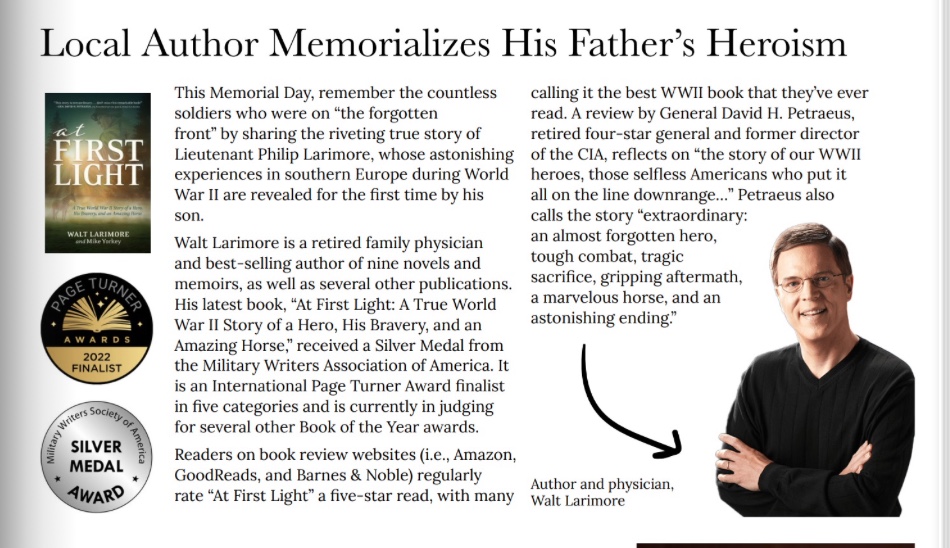
Magazine touts Phil Larimore’s heroics in WWII and the book about him
July 12, 2023Ask Dr. Walt – Episode #10 – Essential #5 – Avoid Loneliness Like the Plague OR The Essential of Relationships (Part 1)
How important are positive friendships and healthful family relationships? You may be stunned to learn that without them, your physical, mental, and spiritual health may suffer. I’ll tell you why on today’s episode of Ask Dr. Walt.
From 2021-2022, I was honored to host a TV show on LiftableTV, “Ask Dr. Walt.” In this series, I’m explaining the 10 key habits or 10 essentials of happy, healthy people.
In this episode, we’ll discuss Essential #5: Avoid Loneliness Like the Plague OR The Essential of Relationships (Part 1). You can click below to watch a video of the show, or I’ve put the show transcript at the end of the blog if you’d prefer that.
You can learn more about this topic in my best-selling book, 10 Essentials of Happy, Healthy People: Becoming and staying highly healthy or Fit over 50: Make Simple Choices for a Healthier, Happier You.
CLICK HERE FOR 10 E’S CLICK HERE FOR Fo50
Disclaimer: The Ask Dr. Walt show is designed for entertainment purposes to give information on various medical conditions, treatments, and procedures for your personal knowledge and to help you be a more informed consumer of medical and health services.
SHOW TRANSCRIPT
Avoid Loneliness Like the Plague — The Essential of Relationships
PART ONE
TEASE:
How important are positive friendships and healthful family relationships? You may be stunned to learn that without them, your physical, mental, and spiritual health may suffer. I’ll tell you why on today’s episode of Ask Dr. Walt.
OPEN:
Hi, everyone. I’m family physician Dr. Walt Larimore and I’m delighted you are taking the time today to join me in my home office as we continue our discussion about some of the essentials of becoming healthy.
We’ve begun reviewing my top 10 recommendations for you to consider on a path to become healthier physically, emotionally/mentally, relationally, and spirituality.
WE’VE ALREADY COVERED:
- The essential of true health—physical, emotional, relational, and spiritual
- The essential of self-care—how to be proactive in preventing disease
- The essential of reducing SADness—stress, anxiety, and depression (2 parts)
- The essential of forgiveness—how to practice acceptance and letting go (2 parts)
TODAY WE’LL COVER:
- The essential of relationships—avoid loneliness like the plague – Part One
IN FUTURE SHOWS WE’LL COVER
- The essential of spiritual well-being—cultivate a positive spirituality
- The essential of a positive self-image—how to see yourself as your Creator sees you
- The essential of discovering your destiny—how to nurture your hopes and dreams
- The essential of personal responsibility and empowerment—how to become your own healthcare quarterback
- The essential of teamwork in healthcare—how to team up with winning healthcare professionals
At the end of today’s program, I’ll tell you how to send in your questions for any of these future topics. But to discuss the topic of the health dangers of loneliness, let’s take some of the questions our viewers sent to me. I want to thank Derek, Jordan, and Kylie on our production team for organizing the questions.
We’ll start with a question from Sam in Des Moines, Iowa. Sam writes, “Is loneliness really that big of a deal? Why devote a program to it? Color me curious.”
In the U.S. loneliness is also very common. A 2020 study from Cigna Insurance found more than 60 percent of Americans report feeling lonely, left out, and lacking companionship.[1] A UCLA study now says that loneliness is reaching “epidemic” levels.[2]
Nighttime radio host, Delilah, writes a chapter in Joe Battaglia’s book, Unfriended, saying, “It seems we are more connected, yet lonelier and more isolated than ever before.”[3] Joe is a close friend, and he says, “We are wired to have community and smartphones cannot meet our needs for love, acceptance, touch, and connection.”[4]
So, Sam, to your question: why is this a big deal?
It’s because researchers are increasingly discovering “loneliness is a common source of distress, suffering, and impaired quality of life.”[5] Loneliness is strongly linked to adverse mental health issues like anxiety and depression. One researcher has written, “Loneliness is breaking our hearts, but as a culture we rarely talk about it.”[6]
One physician, after studying loneliness, concluded, “Simply stated, we are wired for relationships. We need one another and function healthier in relationships.”[7] In fact, relationships in general really impact mental and physical health. More and more research suggests that the kinds of bonds you have with people, how close you are, how connected you feel to others all have significant impacts on your overall wellbeing.
=================
I want to tell you a story that occurred not long after I began private practice in a small town in the Great Smoky Mountains of western North Carolina where I served as a a family physician and the coroner. One evening a sheriff ’s deputy called. “Doc, we got a home death we need you to come see.” If someone didn’t die in a medical facility, the coroner had to be called to the scene, just to be sure there was no foul play.
The deputy met me at the door. “Doc, sure looks natural. Ol’ Lady Smith’s been up here, all alone, for years. Never left the house. Never had any visitors. Never went to the doctor.” He followed me, continuing his soliloquy. “She had a friend who brought her food and supplies. Her friend found her here this evening and called us.” And there she was. Porcelainlike skin, white and smooth. Surprisingly few wrinkles for someone born fifty-two years earlier. I suspected she saw very little sunlight in her days. There was no sign of foul play. By all outward signs she had died quietly, peacefully. As I examined her, I ran through the myriad possible causes of death. Only an autopsy could tell for sure. As I was contemplating the possibilities, the deputy lobbed a theory I hadn’t considered.
“I’ll tell ya what she done died of, Doc,” he began slowly, almost thoughtfully. “This here woman died of loneliness.” He stood there looking down at the body, rubbing his chin whiskers. “You can put whatever you want on that death certificate, but I’ll tell you what, son, she done died of loneliness. I see it all the time.” He turned and walked out.
The autopsy results arrived at my office the next week. The conclusion? There was no obvious cause of death. Now, more than twenty years later, I think the deputy may have been right. She died of the plague of loneliness.
=================
Susan from Knoxville, Tennessee, asks, “I can understand how loneliness could affect someone’s emotional or spiritual health, but can it affect our physical health?
Studies in recent years have documented the dramatic effects of loneliness on physical health. It turns out that loneliness, or what the researchers call social isolation boosts inflammation levels, which can lead to arthritis, type 2 diabetes, and heart disease. It has been linked to a higher risk of coronary heart disease and stroke. It has even been shown to negatively influence our immune systems, and recovery from breast cancer.
In fact, loneliness has the same effect as 15 cigarettes a day in terms of negative health outcomes.[8] In other words, loneliness not only hurts us emotionally and spiritually, but it can kill us physically. A meta-analysis of 148 studies and 300,000 participants reported that one of the major causes of premature death is loneliness.
These researchers reported that “participants with stronger social skills had a fifty percent increased likelihood of [long-term] survival.” They added that having healthy relationships is comparable to the “effects of quitting smoking”[9] But loneliness as a risk factor for predicting poor health has been shown to exceed many well-known risk factors for mortality such as obesity and physical inactivity.
Don in Vine Grove, Kentucky asks, “Is loneliness a bigger health risk for men or women?”
One study of almost 12,000 Japanese men looked at their social support, which they defined as “the maintenance of social networks and family and community ties.” The group with the lowest social support, in other words, those that were the most lonely, had a threefold to fivefold increase in heart disease. The researchers concluded that social networks and close family ties help protect against disease and premature death in men.[10] But it’s not just men. Researchers in Sweden have shown that women who have low levels of social support have more severe disease in their coronary arteries and an increased rate of premature death compared with those less lonely.[11]
Damaris in San Diego writes, “I don’t understand how loneliness actually works to damage a person’s physical health.”
There are three ways spiritual health influences physical health: psychologically, socially, and behaviorally.
Psychologically, there is ample evidence that spiritual health improves coping with negative events while giving life meaning and purpose—both of which are related to better mental health.
Socially, spiritual health is associated with greater social support and greater marital stability, both of which improve mental health and physical health and are associated with living longer.
Finally, spiritual health is associated with healthful habits and behaviors. And we all know living a healthier lifestyle will result in better physical health and greater longevity.
Abbie in Orlando has this question: “Dr. Walt, I’ve heard loneliness is more dangerous as we grow older. Is this true?”
Experts have discovered that those who are isolated and lonely have dramatic declines in mental and physical health as they age compared to those with healthy relationships.[12] And a Dutch study that examined more than 2,000 older men and women reported that those who reported loneliness had a 64 percent increase in the risk of developing dementia.[13] In addition, people also experience an increase in loneliness when they retire from work. That’s why you want to make sure you’re retiring to something, and that you have friends outside of your place of employment.”[14]
Peter in Chicago sent in our next question. He asks, “Besides just being around other people, isn’t being loved by other people even more important?’
Wow, you guys are asking some great questions. Anyway, love, social support, intimacy, security, safety, satisfaction, connectedness, and community—these have all been studied and provide a common theme in the medical and social science literature. When we feel loved, nurtured, appreciated, valued, cared for, and supported, we are much more likely to be happier and healthier. But the opposite is also true: negative emotions like loneliness have an important role to play in a happy, healthful life; they’re big, flashing signs that something needs to change and fast. Loneliness is proof that your divinely designed need for relationship and connection is intact.
Marylee in Kansas City asks, “In an earlier program, you said lifestyle decisions were even more important that our genetics. Is the same true for relationships with others?”
Wow. Another great question. In point of fact, many social science researchers are now saying the most powerful across-the-board factor in predicting premature death and disease is lack of social support. Researchers have looked at a variety of relationship measures, such as a sense of being accepted and loved by others and a sense that the support or help of others is available. Almost all these studies conclude that social support affects health positively.[15]
People who believe that no one cares for them, who don’t feel close to anyone, or who feel they have no one in whom to confide, or to help them out of a bind—these folks are three to five times as likely to experience premature death or disease.
Diana in Virginia Beach, Virginia, writes, “As a family physician, it seems to me that my lonely patients are more likely to engage in unhealthy lifestyles. Do you find that to be true? Does that explain their lack of health?”
Your observation is valid. Another reason loneliness kills, is that a lonely people are more likely to practice unhealthy habits—such as abusing tobacco, alcohol, food, or drugs. In addition, lonely people are more likely to experience poor mental health from anger, anxiety, depression, high-stress jobs, low socioeconomic status, and lack of social support. All of these mental and physical issues can go hand-in-hand with loneliness. But they accounts for only a portion of the risk of loneliness. When the researchers control for unhealthy lifestyles or emotional health, loneliness is still a major risk for poor mental health, poor physical health, and an increased risk of premature death. Nevertheless, there is now no doubt that when these risk factors come together in one person, their effects are compounded and can be explosively dangerous to one’s health.
Kim in Sparta, Tennessee, writes, “I’m concerned about a friend who I think is desperately lonely, but she just fills her life with activities and commitments and social media rather than true friends. Is she actually harming her health?”
Kim, you’ve hit the nail on the head. Happy and healthful living requires positive social relationships in family and community. Abundant life can be birthed in living in positive and healthful relationships and community with other people. The same is simply not true about activity alone. Human beings truly live only insofar as they are related to others with whom they share life and love—with whom they serve God, family, and community.
Kim, it sounds to me like you sense your friend is lonely even when surrounded by people. I bet in her heart of hearts she actually knows this. Let me share a quote from contemporary American researcher George Barna:
Overall, the research paints a portrait of a nation whose adults keep themselves occupied so they do not have to face significant shortcomings. … Many people admit to lacking relational connections and meaning in life. Those two factors are critical to gaining joy and fulfillment in life.
The common solution is to keep busy and to stimulate ourselves with a variety of new experiences—that way we are not so likely to feel the pain of those fundamental holes in our life. People have discovered that if they fill the gaps with commitments and excitement, then they’re less prone to feel the emptiness of loneliness and aimlessness.
Of course, that just prolongs the inner despair that eventually cannot be suppressed any longer.[16]
My sense is that being with all kinds of people in superficial ways all day long can actually be toxic. What’s the antidote to this poison? It’s concentrating on spending time with one or two close friends. Kim, the good news is that your friend can reduce her loneliness by developing and enriching friendships, and this may improve her overall health. Maybe you’re the one that needs to build the first bridge to her, eh?
I only have time for one more question. So, this one comes from Jack in Springfield, Illinois. “I’m a loner and, if I were to be honest, I am lonely. What do you recommend? I’m uncomfortable being in large groups or around a bunch of people.
Jack, your question is the perfect one to end with. Mother Teresa said, “Loneliness and the feeling of being unwanted is the most terrible poverty.” I want to emphasize that to avoid the plague of loneliness, you don’t need a large group of friends. Even one or two close friends with whom you share interests and affection can do the trick. Intentionally involve yourself in a variety of positive and healthy social relationships with people you like and admire—and who are willing and able to care about you and for you.
As the Bible teaches in Hebrews 10:25, “Let us not neglect our meeting together, as some people do, but encourage one another.”
You know, Jesus set an example for us by making time for His friends. He had three best friends, 12 good friends, and 70 strong acquaintances. Dr. J. Nick Pitts points out, “The smaller the number, the greater the intimacy. Buddies can bless you, but best-friends shape you. You give time to your friends, but they give you life—an invaluable return on investment.”[17]
As wise King Solomon wrote in Proverbs 27:17, “As iron sharpens iron, so one person sharpens another.”
======================
Let me end with MY PRESCRIPTION FOR TODAY
One of the first things I prescribe for folks who suffer from loneliness is that they become active in volunteer work. I always keep a list of volunteer and mission opportunities my patients could choose from. I insisted that they commit to this activity. Almost invariably, when they fill this prescription—when they began to give of themselves and begin friendships with others—the change in their countenance and in their overall health is dramatic. Showing kindness to others is an antidote to the poison of loneliness.
===================
Time’s up for today. To continue your journey to becoming a highly healthy person, next time I’ll have Part Two of “Avoiding Loneliness Like the Plague—The Essential of Relationships”—to help you and those you love avoid loneliness like the life-threatening plague it is.
By the way, I go into far more detail and tips about avoiding loneliness and building positive relationships in two of my best-selling books: Fit over 50: Make Simple Choices for a Healthier, Happier You and 10 Essentials of Happy, Healthy People: Becoming and staying highly healthy. You can find them at DrWalt.com. Just click on the tab that says books.
I’d love to hear from you. What questions do you have about the association of your spiritual health to your physical, emotional/mental, and relational health? Just email them to DrWalt@Liftable.TV along with any other general health questions you might have. That’s DrWalt@Liftable.TV
So, until our next visit, “Dear friend, I pray that you may enjoy good health and that all may go well with you, even as your soul is getting along well.”
I’m Dr. Walt Larimore and I look forward to seeing you for my next episode of “Ask Dr. Walt.”
[1] tinyurl.com/pvcxm4s8
[2] tinyurl.com/yaugw3d3
[3] Battaglia, Joe. Unfriended: Finding True Community in a Disconnected Culture. (New York: Broadstreet, 2018): 122.
[4] Battaglia, Joe. Unfriended: Finding True Community in a Disconnected Culture. (New York: Broadstreet, 2018): Back cover liner.
[5] tinyurl.com/yb9lztoj
[6] tinyurl.com/nyr7gak
[7] tinyurl.com/yc3rhewq
[8] tinyurl.com/ybhych76
[9] tinyurl.com/hfw6cu7
[10] Marmotetal, M.G. “Epidemiologic studies of coronary heart disease and stroke in Japanese men living in Japan, Hawaii, and California: Prevalence of coronary and hypertensive heart disease and associated risk factors,” American Journal of Epidemiology 102, no.6 (1975): 514–25. tinyurl.com/yc4el9f8.
[11] Orth-Gomer, Kristina. quoted in Dean Ornish, Love and Survival. (New York: Harper Perennial, 1998_ 186–87.
[12] tinyurl.com/yabz9gbg
[13] tinyurl.com/ycqva398
[14] tinyurl.com/ybtnyv3y
[15] tinyurl.com/ybpdjzw5
[16] Barna Updates. “Most People Seek Control, Adventure, and Peace in Their Lives,” Barna Updates (1 August, 2000).
[17] tinyurl.com/ybtxuaob
Disclaimer: The “Ask Dr. Walt” show is designed for entertainment purposes to give information on various medical conditions, treatments, and procedures for your personal knowledge and to help you be a more informed consumer of medical and health services.
© Copyright WLL, INC. 2023. This blog provides healthcare tips and advice that you can trust about a wide variety of general health information only and is not intended to be a substitute for professional medical advice, diagnosis, or treatment from your regular physician. If you are concerned about your health, take what you learn from this blog and meet with your personal doctor to discuss your concerns.

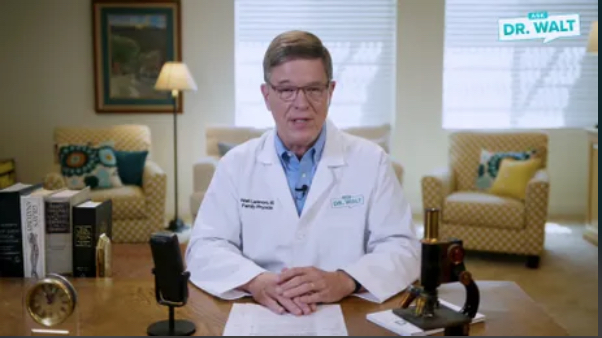
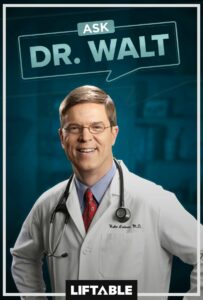
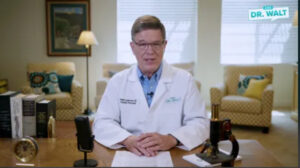
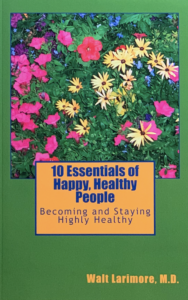
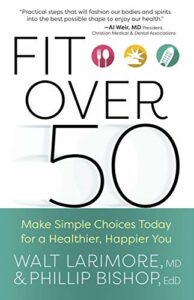

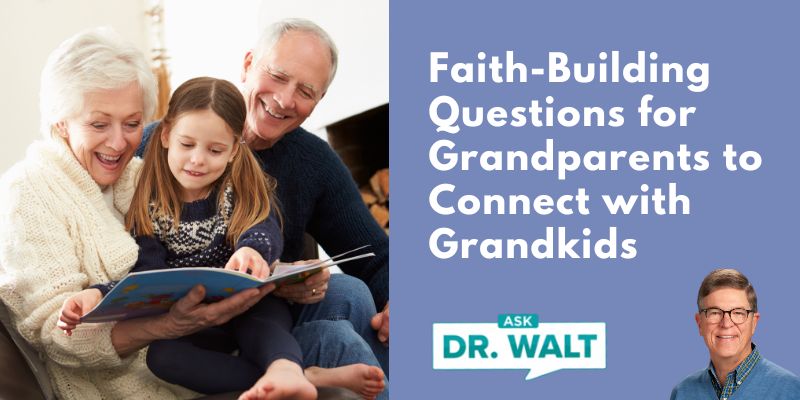
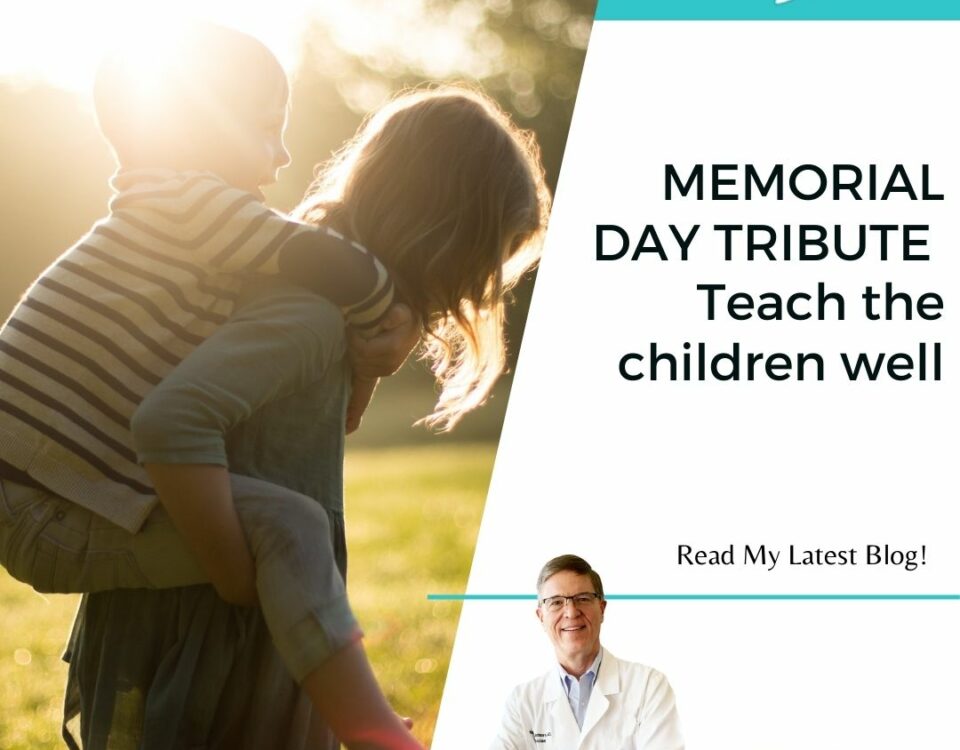
2 Comments
I enjoyed this one about voiding loneliness like a plague.
I hope part two will be an equal blessing.
Dr. Walt